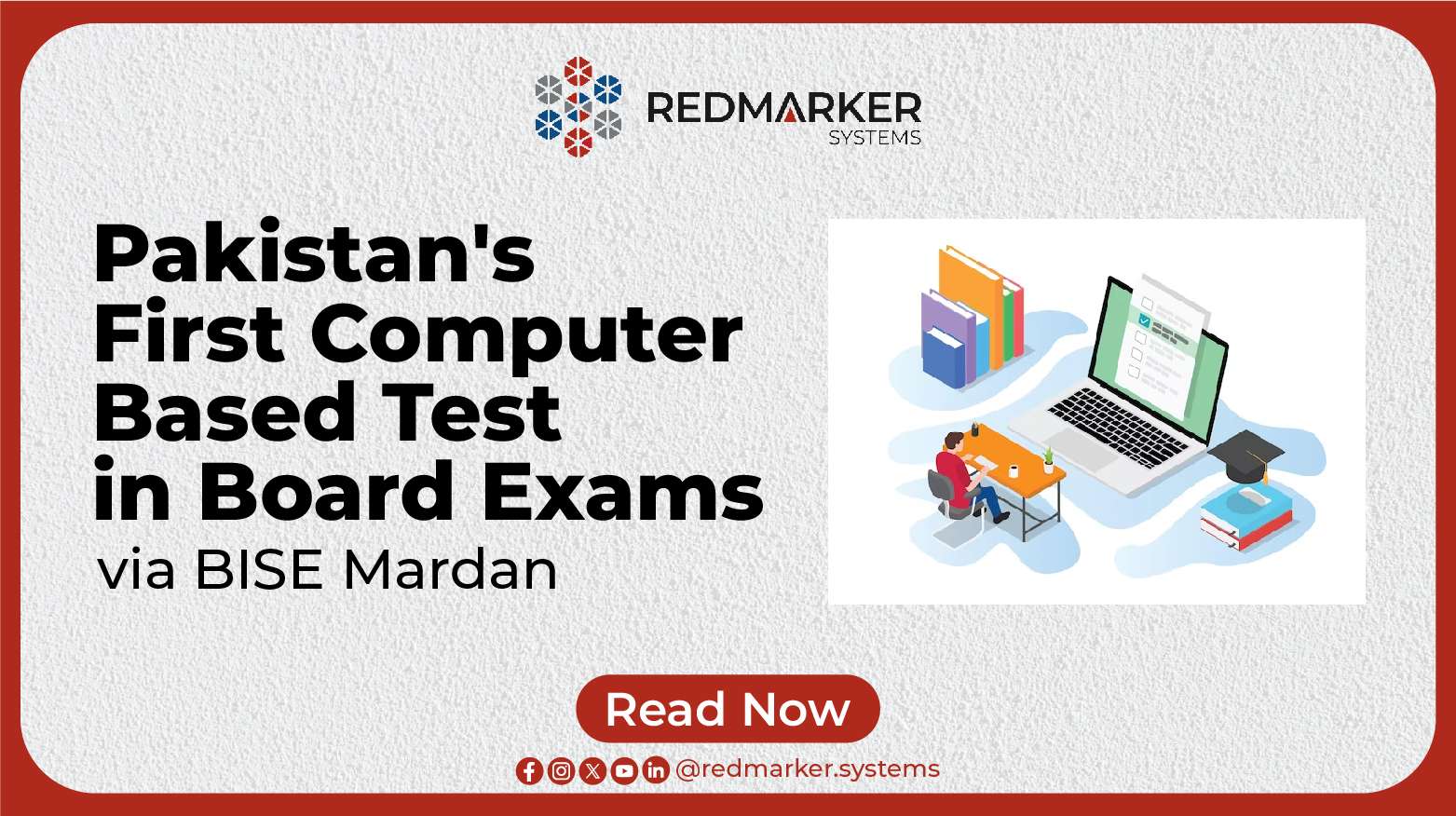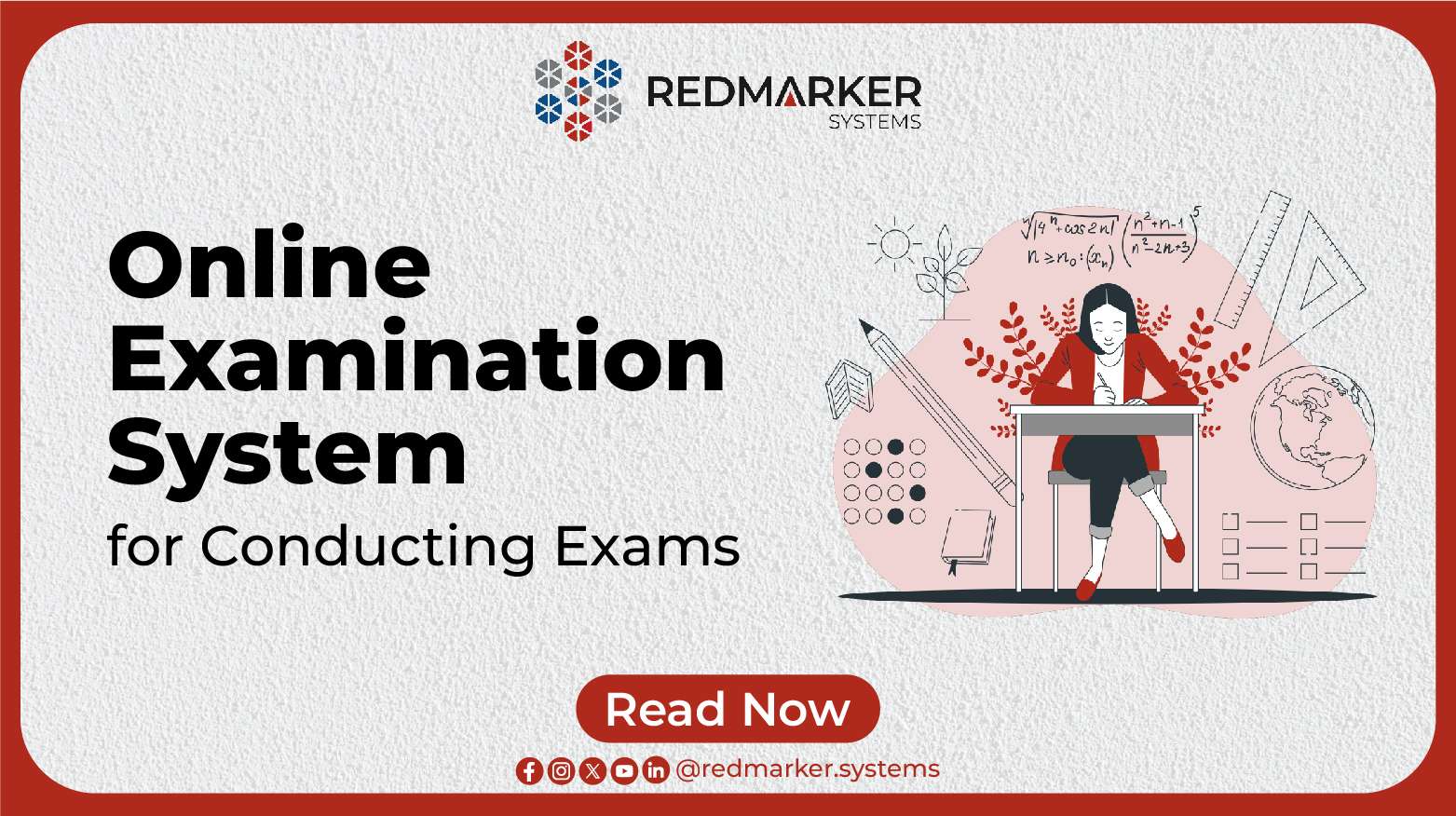Introduction
The education landscape has evolved dramatically with the advent of technology, and one significant change is the transition from traditional paper-and-pencil exams to online assessments. While this shift comes with its own set of challenges, it brings a host of advantages, especially when it comes to exploring the benefits of Online Exams and how they make marking easier for educators. In this comprehensive article, we will delve into the reasons why marking online exams is easier for educators and how it benefits both teachers and students.
The Digital Advantage of Online Exams
Streamlined Assessment Process
Online exams streamline the entire assessment process. Unlike traditional exams, where teachers spend hours collecting and organizing paper tests, online exams allow for automated administration and data collection. This means educators can focus more on the actual content of the exam and less on logistics.
Automated Scoring Systems
One of the most significant advantages of online exams is the use of AI-powered exam marking systems. These systems not only save time but also provide more accurate and consistent grading. With traditional exams, human error and subjectivity can sometimes lead to unfair assessments. In contrast, automated systems follow predefined criteria to ensure fairness.
Enhanced Security Measures
Online exam platforms come equipped with robust security features, ensuring online exam security. This reduces the risk of cheating and ensures the integrity of the assessment process. Educators can track students’ activity during the exam, flag suspicious behavior, and implement measures to prevent academic dishonesty.
Teacher’s Perspective
Reduced Workload
Marking stacks of papers is a time-consuming task. Online exams eliminate the need for physical papers and allow teachers to grade from the comfort of their computers. This significantly reduces the workload, freeing up time for other essential aspects of teaching.
Instant Feedback
Online exams enable educators to provide instant feedback to students, enhancing feedback and improvement. This quick turnaround benefits both teachers and learners. Teachers can address misunderstandings promptly, while students can learn from their mistakes and make improvements sooner.
Customization Options
Online exam platforms offer customization options, allowing teachers to create a variety of question types, from multiple-choice to essays. This flexibility empowers educators to design assessments that align with their teaching objectives and evaluate students more effectively, using effective assessment tools like grading rubrics.
Student Benefits
Convenience and Flexibility
Students appreciate the convenience and flexibility of online exams, which are a significant part of remote learning. They can take the test from anywhere with an internet connection, reducing the need for physical presence. This convenience is especially valuable for learners with busy schedules.
Reduced Stress
The traditional exam room setting can be intimidating for some students. Online exams create a more relaxed environment, reducing test anxiety and promoting a more positive learning experience while enhancing student engagement.
Fair Assessment
Online exams are designed to be fair and unbiased, enhancing the advantages of e-assessment. Automated systems ensure that every student is evaluated using the same criteria, reducing the potential for discrimination or favoritism.
Challenges and Solutions
Technical Issues
While online exams offer numerous advantages, technical glitches can occasionally disrupt the process. However, most platforms are equipped with technical support teams to address issues promptly. Educators can also provide guidelines for students to troubleshoot common problems and ensure time-saving grading tips.
Academic Integrity
Maintaining academic integrity in online exams is crucial. Educators can employ plagiarism detection tools and proctoring services to minimize cheating. Educating students about the consequences of dishonesty is also essential, thus ensuring security in online exam marking.
Accessibility
Ensuring that online exams are accessible to all students, including those with disabilities, is vital. Online platforms offer features like screen readers and adjustable fonts to accommodate diverse needs.
Maximizing Grading Efficiency for Online Exams
Efficiency in grading is a critical aspect of online exams. Educators can explore various time-saving grading tips and techniques to streamline the grading process further. Some useful strategies include:
- Utilizing Online Exam Software: Leverage dedicated online exam software to automate grading and reduce manual effort. These tools often come with features like AI-powered grading, which can significantly speed up the process.
- Effective Use of Grading Rubrics: Develop grading rubrics that provide clear criteria for each question type. This not only ensures consistency in grading but also helps educators grade more efficiently.
- Batch Grading: Group similar questions together and grade them in batches. This approach minimizes context-switching and allows educators to focus on specific aspects of the exam at a time.
- Automated Feedback: Utilize automated feedback systems within online exam software to provide students with instant feedback on their performance. This reduces the need for manual feedback on every question.
The Advantages of Paperless Grading in Online Exams
Going paperless in grading online exams offers several benefits:
- Environmental Sustainability: Eliminating the need for physical paper contributes to a more sustainable environment by reducing paper waste.
- Accessibility: Digital grading allows educators to access and grade exams from anywhere, providing more flexibility in their work.
- Easy Storage and Retrieval: Digital records are easier to store and retrieve compared to physical papers, making them convenient for future reference.
- Reduced Administrative Work: There’s no need for physical storage space, and the risk of misplacing exams is significantly reduced.
Providing Feedback for Improved Online Exam Marking
Constructive feedback is a valuable tool in online exam marking. It not only aids in the assessment process but also enhances student learning. Here are some ways to provide effective feedback:
- Specific and Actionable: Ensure that your feedback is specific and provides actionable guidance. Point out where students went wrong and suggest how they can improve.
- Timely Feedback: The immediacy of online exams allows for timely feedback. Take advantage of this by providing feedback soon after the exam, when it’s most relevant to students.
- Encouraging Self-Reflection: Encourage students to reflect on their performance based on your feedback. This can lead to a deeper understanding of the material.
- Positive Reinforcement: Balance constructive criticism with positive reinforcement. Acknowledge areas where students performed well to motivate continued progress.
Conclusion
In conclusion, marking online exams is undeniably easier and more efficient for educators. The digital advantage, streamlined processes, and benefits for both teachers and students make it a valuable transition. While challenges exist, they are manageable with the right strategies and tools. As technology continues to evolve, the future of education increasingly belongs to online assessments.
Frequently Asked Questions:
Can online exams be as secure as traditional ones?
Yes, online exams can be highly secure with the implementation of robust security measures such as proctoring, plagiarism detection, and activity tracking. These measures help maintain the integrity of online assessments.
What tools can help educators create online exams?
Educators can use various online exam platforms and top exam marking tools to create and administer exams. These platforms offer customization options and automated grading features, maximizing grading efficiency for online exams.
Is it possible to prevent cheating during online exams?
While it’s challenging to eliminate cheating entirely, educators can employ proctoring services, plagiarism detection tools, and clear guidelines to deter and address cheating effectively during



